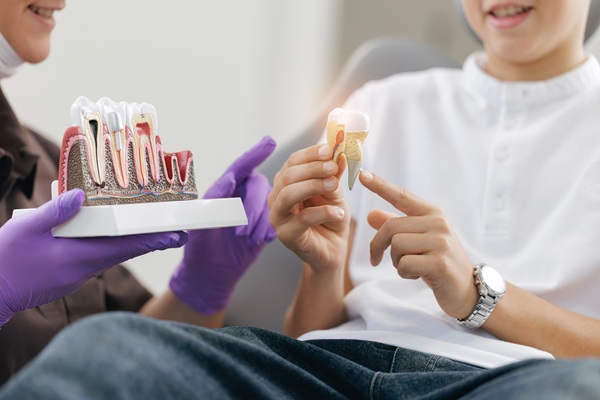What is a Root Canal and Why Would I Need One?

If you have dealt with issues with a tooth, you may begin to explore solutions, including a Root Canal. Also known as endodontic therapy, a root canal procedure is conducted when infection sets into the nerve or pulp of the tooth and causes inflammation. According to the American Dental Association, the infection could be a result of dental decay, a fractured or broken tooth or tooth injury.
All about root canals
What is root canal?
A root canal involves the use of a dental drill to clean away both the infected nerve and pulp from the tooth. The dentist or endodontist can recommend a root canal after evaluating your condition.
Why you may need a root canal
The most common case that signifies the need for the root canal procedure is tooth pain. The amount of pain can vary from mild to severe; it may reduce or intensify throughout the day or worsen only when the tooth is under pressure. Some patients may suffer severe tooth sensitivity when eating hot or cold foods or liquids. The gum surrounding the affected tooth may redden and swell. If you see any of these symptoms, reach out to your dentist immediately. Be sure to mention all the symptoms, as you may need to be taken in for treatment before it worsens. To reduce the pain and swelling, you can place an ice pack on the jaw.
What a root canal procedure entails
When you go for your appointment, the dentist will evaluate your tooth and take x-ray scans to discover the origin of the problem. After a proper screening, the dentist will know enough to suggest the best treatment to alleviate the symptoms or refer you to an endodontist, a specialist in treatments involving the tooth nerves and pulp. Depending on the cause, the dentist may suggest a root canal or another dental procedure to solve the issue.
Endodontic treatment typically takes about one or two dental visits. The dentist will first administer a local anesthetic to numb the area and then place a dental dam on the area to isolate it and prevent contamination during the procedure.
The endodontist will create an opening in the tooth crown to access the pulp of the tooth. Tiny dental instruments will be used to clean the infected pulp from the pulp chamber and roots before shaping the hole for a filling. Once that is complete, the dental expert will fill the root chamber with a biocompatible material called gutta-percha and bond it with adhesive cement.
In most situations, a temporary filling may be used to close the opening; the dentist will remove this before restoring the tooth. After the procedure, you have to return to the dentist for a crown or dental restoration to shield the tooth and restore functionality.
If the tooth does not have enough structure to hold a dental restoration, the dentist may insert a post into the tooth. Talk to your dentist to learn more about the different methods of restoration suitable for your teeth after a root canal procedure.
Request an appointment here: http://www.riversdentistry.com or call Rivers Family Dentistry at (979) 710-2216 for an appointment in our Bryan office.
Check out what others are saying about our dental services on Yelp: Root Canal Treatment.
Related Posts
Dental implants can restore missing teeth with a stable, natural-looking solution and are often the recommended choice when early warning signs appear in the mouth. Many people assume tooth replacement can wait, especially when only one tooth is missing or when discomfort seems mild. However, delays can allow shifting, bone loss, and bite changes that…
A family dentist can help guide you and your loved ones toward optimal care. These are dentists who are capable of treating the members of your household, from toddlers to senior citizens. Good dental health begins with establishing good oral hygiene routines. Our family dentist advises patients to view brushing and flossing as things they…
A family dentist plays a central role in long-term oral health, and choosing the right family dentist helps households stay consistent with preventive care. Because dental needs evolve from childhood through adulthood and into later years, the ideal practice supports a wide range of services in one location. The right choice reduces stress, simplifies scheduling,…
Rivers Family Dentistry is proud to be a premier dentist near Traditions and the surrounding 77807 area, serving the families who live, work, and play in one of Bryan’s most vibrant and prestigious communities. Whether you are spending a Saturday morning at the Traditions Club playing golf, enjoying the scenic trails near Lake Walk, or…


